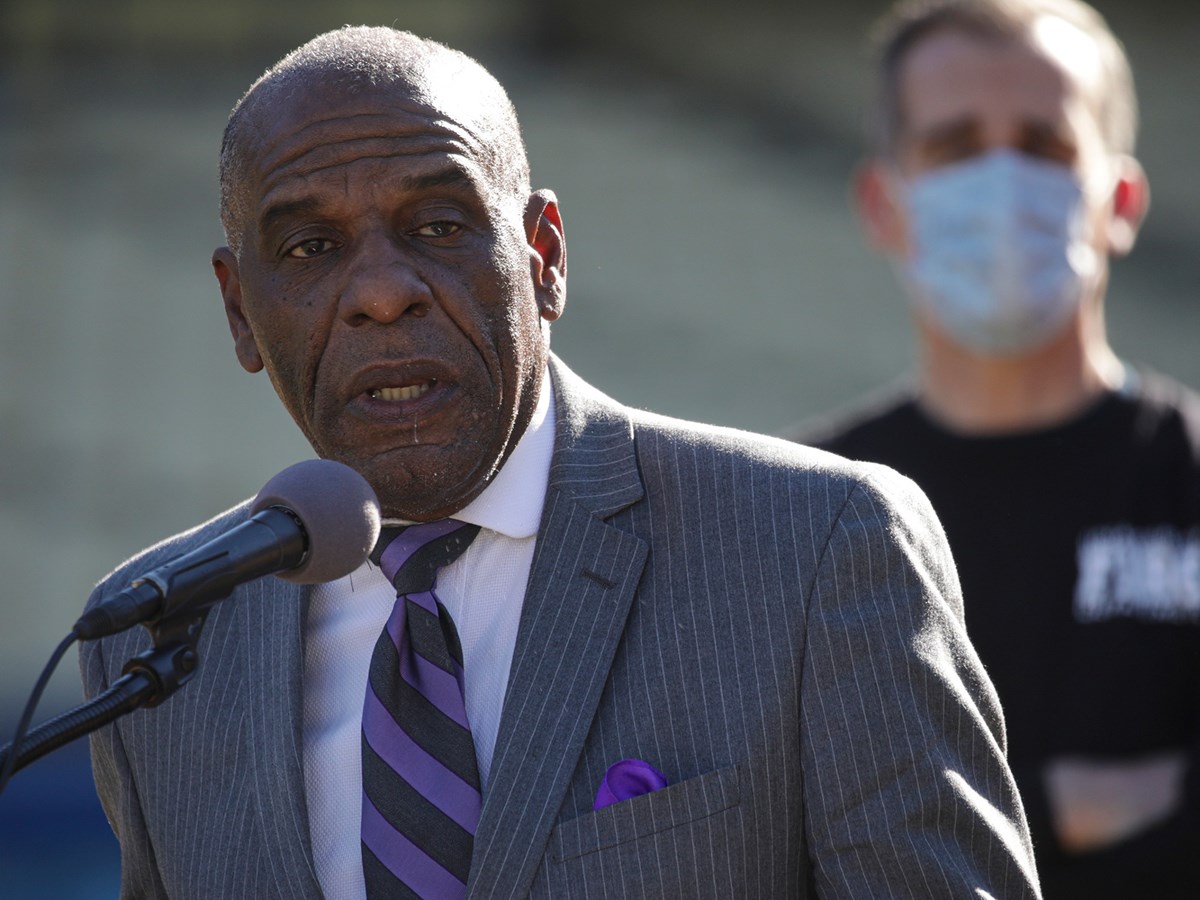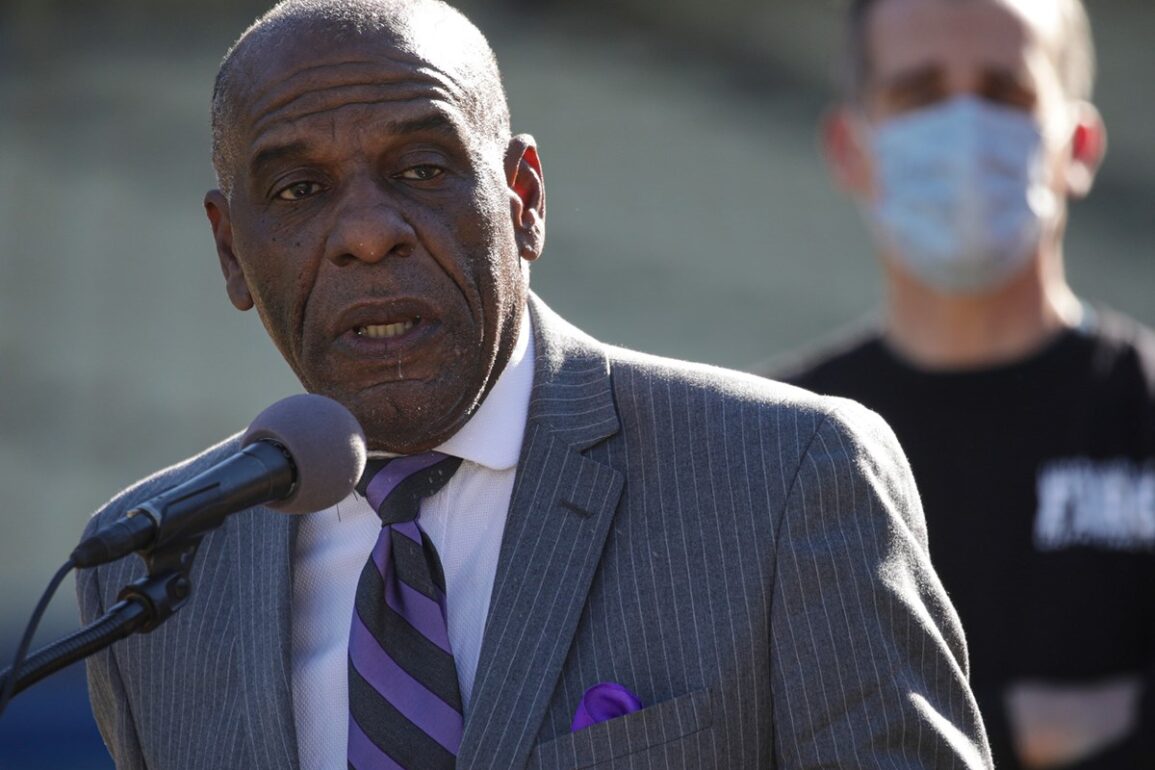California passed the first state-level reparations laws in the country this year. Still, many of the most impactful pieces of the same package died or were vetoed.
The lawmakers responsible for it are taking stock of what they learned as they make plans for next year, while people outside the state are considering what this means for their own work.
And everyone’s watching to see if voters will pass the last piece of this year’s work, Proposition 6. If passed by voters this month, it would ban involuntary servitude as a punishment for crime from the state’s constitution, a move that would affect forced prison labor.
“We have gone farther than any other state in our nation,” said Lori Wilson, the outgoing chair of the California Legislative Black Caucus. She said she’s proud of what they did this year.
Five bills from the caucus’ reparations package were signed into law, including measures that call for the state to make an official apology for slavery, curb discrimination of natural hairstyles in sports and publish information on detention facility book bans. Direct cash payments were never on the table for this year, but are part of a long-term plan for the caucus.
“It was really exciting, and it was mixed in some ways because we had a little bit of a community backlash,” Wilson said.
Governor Gavin Newsom is a proponent of reparations. Still, he vetoed some of the bills, saying they weren’t ready or too costly. Others died in the legislature.
Senator Steven Bradford from the Los Angeles area is a member of the caucus, and he authored some bills that didn’t make it. One addressed race-based use of eminent domain. Another one would have created a department to implement the new laws.
California’s budget includes $12 million for undefined reparations work this year. Bradford admits it’s not much — but he counts that money as a win.
But the lawmaker also says the effort should’ve had more teeth.
“We had great momentum until the last week of session for the real substantive stuff to really help stand up reparations,” he said.
 In this Jan. 15, 2021, file photo, state Sen. Steven Bradford, D-Gardena, addresses a press conference at Dodger Stadium in Los Angeles.Irfan Khan / Los Angeles Times via AP, Pool, File
In this Jan. 15, 2021, file photo, state Sen. Steven Bradford, D-Gardena, addresses a press conference at Dodger Stadium in Los Angeles.Irfan Khan / Los Angeles Times via AP, Pool, File
Some organizers in the state agree with him — several dozen protestors crowded the rotunda of the state Capitol on the last day of the legislative session in August to push back as legislators killed some of those bills.
Carmen-Nicole Cox with the ACLU California Action expressed her frustration at a rally for Proposition 6.
“We absolutely vote people in because we believe that they are going to advance certain policy, and then when they show us that they won’t, we get to vote again,” she said.
With California taking the lead on these novel laws, people outside the state doing similar work are watching closely. Some say the setbacks showed that getting the most impactful policies through is going to take a while.
“It is disappointing, and it is a really important, courageous start,” said Aria Florant, co-founder of Liberation Ventures, which tracks the progress of dozens of reparations efforts nationwide.
She was hoping to see California set a high precedent, but knew the likelihood of it passing lots of heavy-hitting legislation in one year was low.
Her organization partnered with researchers at Princeton University on a poll gauging support for reparations in the U.S. Most Americans still don’t support them, and only 11% think direct cash payments will ever happen.
“Every movement — it doesn’t always move in a linear fashion, right?” Florant said.
Still, they found that support has doubled for reparations over the last two decades. Additionally, when they surveyed people about individual aspects of reparations, they responded much more positively. For example, over 60% said they support criminal justice reform, education about slavery and investments in Black communities – all common aspects of reparations work.
Assembly Member Corey Jackson is also a member of the caucus, and he says a lot of people aren’t even on the same page about what reparations should look like.
“If you even look at your own family, right, and you try to make a decision — everybody ain’t gonna agree,” he said.
He said some of the setbacks, including Newsom’s veto on creating a state agency to implement reparations laws, are going into their planning for next year.
“We realized that we needed to do a lot of work ahead of time,” he said. “Not just relying on the legislative process to help get it done.”
He also said his priority was to teach people about the model of reparations the caucus is looking to — which eventually includes cash payments, but starts with acknowledgement and an apology.
On Election Day, California voters will decide if that also means ending forced labor in prisons under Proposition 6, the caucus’ last remaining reparations proposal, at least for this year.
CapRadio provides a trusted source of news because of you. As a nonprofit organization, donations from people like you sustain the journalism that allows us to discover stories that are important to our audience. If you believe in what we do and support our mission, please donate today.





